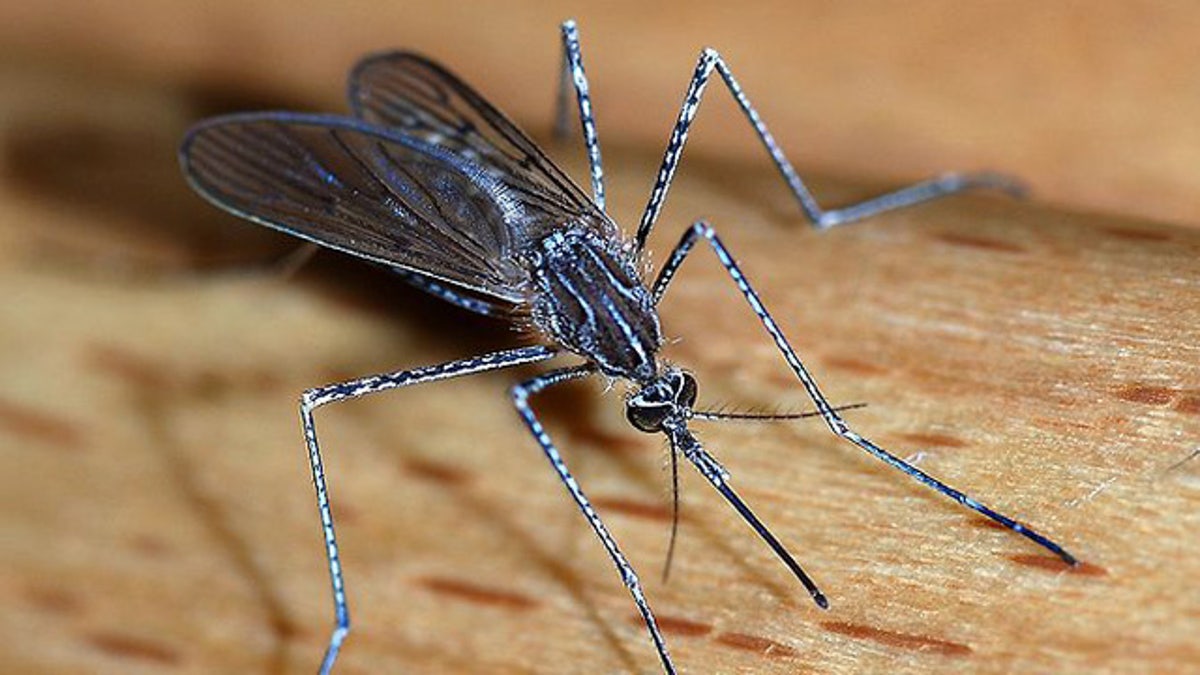
Around 40 percent of the world's population is at risk of malaria, often transmitted through mosquito bites. (Wikipedia.org/Alvesgaspar)
Experts in Japan developed a mosquito that spreads vaccine rather than disease when it bites humans, it emerged Friday.
A group of Japanese researchers altered the insects' DNA in a bid to fight the diseases they carried, changing them into what the scientists call "flying vaccinators," the Science Now journal reported.
When mosquitoes normally bite they inject a tiny drop of saliva that prevents the victim's blood from clotting.
In the Japanese study, published in the April issue of Insect Molecular Biology, the researchers added an antigen -- a compound that triggers an immune response -- to the protein mix in the prototype mosquito's saliva, Science Now reported.
Molecular geneticist Prof. Shigeto Yoshida of Jichi Medical University in Tochigi, Japan, who led the study, said they were still working on an effective malaria vaccine, and that the study was "proof of a concept," Insect Molecular Biology revealed.
However, Yoshida admitted that regulatory and ethical problems would prevent the prototype from flying. There is a huge variation in the number of mosquito bites one person receives compared to the next, so people exposed to the prototype would get very different vaccine doses, the journal reported.
Fellow molecular biologist Prof. Robert Sinden of Imperial College London suggested that no regulatory agency would sign off releasing the insects, especially as those bitten would not be able to give their consent to the procedure, Science Now added.








































